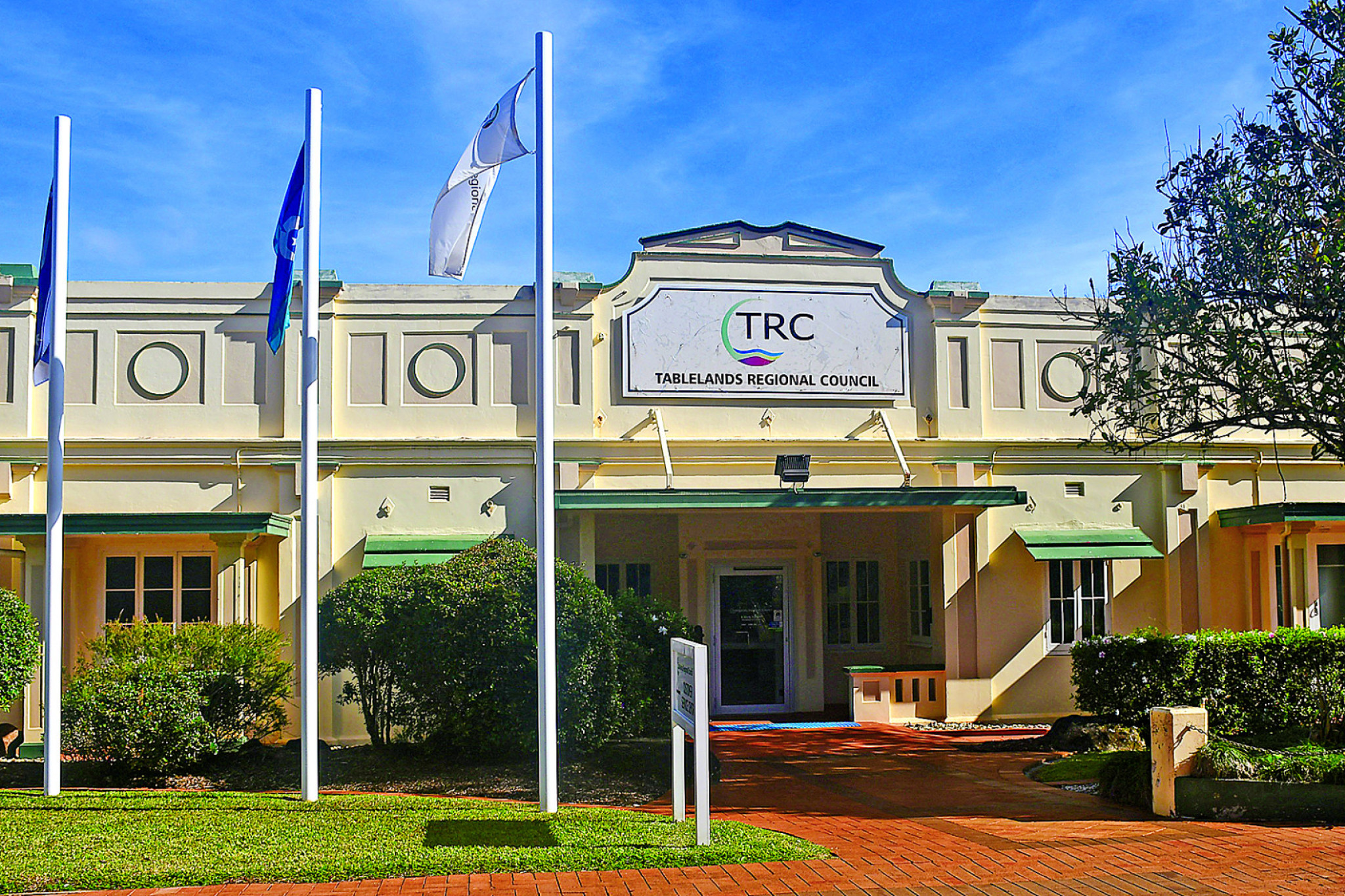General News
8 July, 2025
Major review of TRC underway
MAJOR changes are afoot for Tablelands Regional Council, with all its advisory groups dissolved as chief executive officer Nikola Stepanov embarks on an extensive review of how the organisation does its business.

As part of its Budget release, Mayor Rod Marti revealed Dr Stepanov had been tasked with finding operational savings and would undertake internal reviews of council’s services, how the organisation procured materials and services, and how projects were managed to deliver better outcomes.
In his comments at the budget meeting, Deputy Mayor Dave Bilney let it slip that the organisation was seeking to reduce its workforce by 10%.
He said this would happen through natural attrition – when a position became vacant, a review would be done to determine if the position was needed.
The organisation is facing a big financial challenge as it prepares to tackle large infrastructure projects to replace ageing sewerage and water assets.
Dr Stepanov said the 2025-26 Budget had been the “most challenging budget yet” as the organisation faced a forecast 10-year capital works program of $530 million over the next 10 years.
“There is a need to squarely address our challenges, and this budget is the necessary first step to ensuring that, as a service and infrastructure intensive business, council has made the necessary tough decisions to position itself to meet this significant financial challenge and to ensure a sustainable future for our local government area,” she told the budget meeting.
She said council needed to demonstrate to the Queensland Treasury Corporation that it could build sufficient cash reserves and have adequate borrowing capacity to fund the delivery of the capital works program.
“To achieve the outcomes required, the way council is managed and does business needs to change, particularly as we have a relatively small base of ratepayers and water, sewerage and waste payers (13,600 and 10,500 respectively) in proportion to the services council provides, and the almost $900 million of infrastructure assets that council maintains,” Dr Stepanov said.
She said the current financial year would be a “time of change and reform”, with a number of initiatives to be undertaken across council as part of the roadmap to achieving financial sustainability.
These would include:
n rationalising underutilised or unused assets to a level ratepayers can afford to maintain and sustain
n forward planning for any asset that will reach the end of life within the next
10-year period
n undertaking service and operational reviews to ensure TRC is delivering services the community can afford
n reviewing rating systems and fees and charges with a focus of better ensuring council’s long-term financial sustainability
n further developing asset management plans across asset classes including assessing asset conditions in the critical areas of water and sewerage
n increasing revenue and finding operational efficiencies across the business of council to ensure that it is not dependent on revenue from the water, sewerage and waste utilities, and
n ensuring utilities function as discreet businesses that generate enough revenue to pay their own way.
Mayor Marti also advised that council’s leases and licenses would be included in the reviews to ensure council was “not committing to a higher level of support, including through building maintenance, than our ratepayers can sustain when it enters into leases and licences”.
At the end of its ordinary meeting, behind closed doors, the council also decided to dissolve all its current advisory groups, and create a new selection of working groups and other committees.
“This decision has not been made lightly and we’ve made these changes to ensure we’re meeting our legislative requirements while continuing to foster community engagement, transparent decision-making, information sharing and good governance,” Dr Stepanov said.
“I thank the current and past committee members for selflessly volunteering their time, energy and expertise.
“We look forward to working with the community in the future as part of our working groups and committees, and at our community forums.”


